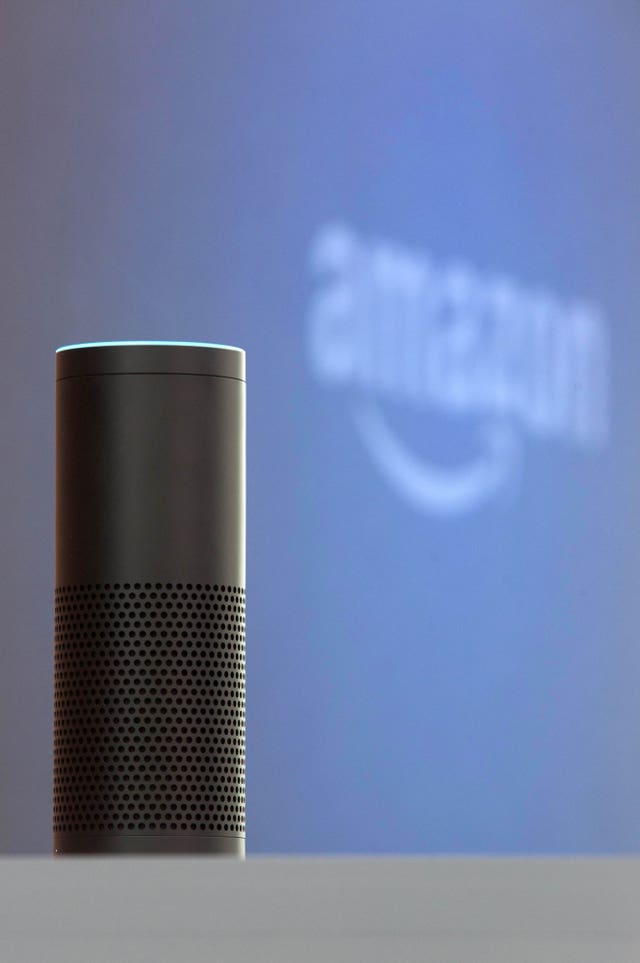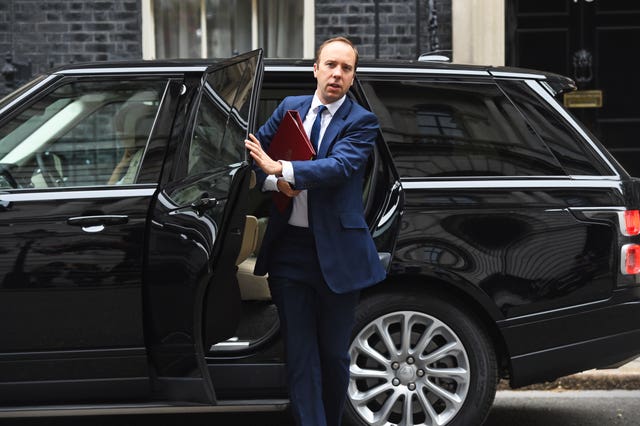Amazon insists Alexa health info will stay safe
The partnership between the NHS and Amazon is being led by a new digital health body, NHSX.

Amazon has defended its new partnership with the NHS, insisting it takes customer privacy seriously.
Campaigners have criticised a move to provide verified health information via Amazon’s Alexa, saying it is a “data protection disaster waiting to happen”.
But Health Secretary Matt Hancock called it “absolutely terrific” and said the NHS needed to embrace technology because it “will give back the gift of time” to clinicians.
Until now, people asking Alexa a health question would be given an answer based on a variety of popular responses.
But the new partnership means Alexa will now give answers based on information from the official NHS website, which has been verified by health professionals.
The aim is to help patients, especially the elderly, the blind and those who are unable to access the internet in other ways to take more control of their healthcare and help reduce the burden on the NHS.

However, the move has been met with scepticism, with Silkie Carlo, director of Big Brother Watch, saying: “Encouraging the public to give their private health details to one of the most aggressive corporate data guzzlers is astonishingly misguided.
“Amazon’s Alexa records what people say, stores recordings in data centres we know nothing about, and exploits our data for profit.
“This scheme will likely result in people being profiled and targeted by data brokers based on their deeply personal health concerns.
“Healthcare is made inaccessible when trust and privacy is stripped away, and that’s what this terrible plan would do. It’s a data protection disaster waiting to happen.”
Amazon said in a statement that “customer trust is of the utmost importance, and Amazon take privacy seriously.”
It added: “Customers are in control of their voice history. They can review and delete voice recordings in the Alexa App or by visiting amazon.co.uk/privacy.
“They can also opt-in to ‘delete what I just said’ or ‘delete what I said today’.”
Amazon said it would not share any information with third parties, nor is it selling products or making product recommendations based on the health information.
It said it will not build a health profile of customers and all information is treated with the highest confidentiality.

The new partnership has been spearheaded by NHSX, an NHS body set up to bring digital technology to patients.
Mr Hancock defended the plans, telling the King’s Fund annual leadership conference in central London on Wednesday: “I think it’s absolutely terrific, because at the moment they are asking Alexa about stuff anyway so why not get them the best advice?”
But he said that someone on Twitter had called the plans “outrageous” because of the shortage of GPs.
He said: “What about we use technology as well as hiring more GPs? We’ve got rising numbers of GPs, we’ve got record numbers in training – good, we need to do more on that – but by God we can use technology to make sure people get a better service as well.
“This is not an either or. And the truth is that the delivery of good technology – that is all about leadership as well.
“It’s all about people, it’s about having people at the top of NHS trusts who get that technology will give back the gift of time to their clinicians and save lives and improve the lives of their patients.”
However, The Times reported that Mr Hancock had dismissed the idea of using voice-assisted technology at a Times/Red Box event last May when he was culture secretary.
He said that he did not own an Alexa-enabled device “and I wouldn’t want one”, adding: “I don’t want one because I think there is an essential humanity that we have got to preserve.
“We haven’t as a society and as individuals yet at all come to terms with how we use this technology for the better.”
Amazon’s algorithm will use information from the NHS website to provide answers to questions such as: “Alexa, how do I treat a migraine?”, “Alexa, what are the symptoms of flu?” and “Alexa, what are the symptoms of chickenpox?”
Professor Helen Stokes-Lampard, chairwoman of the Royal College of GPs, welcomed the move but urged caution, saying: “This idea is certainly interesting and it has the potential to help some patients work out what kind of care they need before considering whether to seek face-to-face medical help, especially for minor ailments that rarely need a GP appointment, such as coughs and colds that can be safely treated at home.
“However, it is vital that independent research is done to ensure that the advice given is safe, otherwise it could prevent people seeking proper medical help and create even more pressure on our overstretched GP service.”





